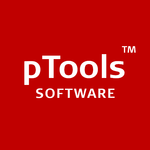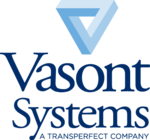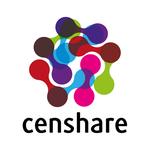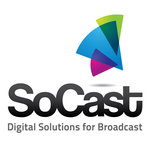What Is Content Management Software?
An effective tool for managing, producing, and publishing digital material on a website or other online platform is content management software, or CMS. It is a one-stop shop for effectively managing all kinds of content, including documents, videos, and text and images. You can simply save and arrange your material in a structured way with content management software, which makes it simple to find and update as needed.
This saves you time and boosts productivity by doing away with the headache of sorting through numerous files and folders. The capacity of content management software to facilitate simultaneous collaboration and work on the same piece of content is one of its primary benefits. This simplifies the process of creating and reviewing material, which is particularly helpful for companies with teams dispersed across several locations.
Additionally, a decent CMS will feature an intuitive user interface with drag-and-drop capabilities and customizable templates that make it easy for even non-technical people to generate and publish content. This lessens the need for intensive training and technical assistance while also improving the user experience overall. The ability of content management software to interact with other platforms and tools, such social media and email marketing software, is another important benefit of adopting it.
This maximizes the reach and impact of your content by enabling its smooth distribution across many media. Furthermore, content management software has security features that guarantee your material is shielded from malevolent attacks and illegal access. For companies that deal with sensitive data and wish to preserve the confidentiality and integrity of their material, this is essential.
Examining the features, scalability, and pricing alternatives provided by various suppliers is crucial when thinking about buying content management software. Wix, Drupal, and WordPress are a few of the well-known content management systems available on the market. To evaluate the software's functioning and choose which one best suits your company's needs, we advise utilizing the free trials and demos available.
What Are The Recent Trends In Content Management Software?
The content management software market is always seeing new developments and trends in the constantly changing digital landscape. Having a strong content management system in place has become essential as companies and organizations depend on digital material to engage with their audience. The following are a few current developments in content management software:
1. Solutions: based on the cloud Cloud-based content management software has grown in popularity as remote work and data accessibility become more and more necessary. These solutions guarantee data protection and provide simple access to material on any device, from any location.
2. Personalization: material management software now has sophisticated analytics and artificial intelligence (AI) features that allow it to customize material to the user's tastes as consumers demand more individualized experiences. This boosts the overall consumer experience in addition to increasing user engagement.
3. System Integration: Managing content is no longer the only function of content management software. It now offers a smooth and effective workflow by integrating with other systems like CRM, eCommerce, and marketing automation.
4. Mobile Optimization: As mobile devices have grown in popularity, content management software is now being developed to work flawlessly on these platforms. This includes mobile-friendly design, easy-to-use navigation, and content creation and editing capabilities.
5. User Experience Is Emphasized: Content management software suppliers now place a high premium on user experience. The goal is to provide user-friendly, intuitive interfaces that can easily manage complex activities with little training.
6. Teamwork And Collaboration: Content management software now has collaborative tools that let several people work on the same project at once. This increases team productivity and simplifies the content creation process.
7. Data-Driven Decision Making: Content management software's sophisticated analytics and reporting features assist companies in making data-driven choices. This entails monitoring user interaction, content performance, and spotting any holes in the content that require attention. The goal of these new developments in content management software is to streamline, optimize, and personalize the process of creating and managing information. Taking these trends into account as a buyer might assist you in selecting content management software that fits your company's objectives and requirements.
Benefits Of Using Content Management Software
Effective and well-organized content management is essential as companies keep growing their online presence. Content Management Software (CMS) is useful in this situation. A CMS is a platform that makes it simple for companies to produce, organize, and share digital material, including pictures, videos, and articles.
However, what particular advantages come with utilizing a CMS? Let's dissect it.
1. Simplified Content Creation And Publishing: Creating and publishing content fast and easily is one of the main benefits of using a content management system (CMS). Even non-technical team members may contribute and change website material with ease thanks to an intuitive interface. This guarantees accuracy and consistency in your brand's messaging in addition to saving time.
2. Centralized Content Repository: Searching through servers and folders for particular content is no longer necessary. All of your digital content is kept in one place by a CMS, which makes it manageable and readily available. Team members may access and edit content in real-time, which not only saves time but also enhances collaboration.
3. Scalable And Customizable: When it comes to content management, every company has different requirements. Businesses can customize CMS to meet their unique needs because to its many adjustable features. Furthermore, a CMS is extremely adaptable, which means it can simply adjust to your changing needs as your organization expands.
4. Better SEO: A CMS has built-in tools and capabilities to assist make your website more search engine optimized (SEO). A CMS can help you reach a larger audience by improving your website's exposure in search engine results through the creation of meta descriptions and image optimization.
5. Multi-Channel Publishing: To reach their target audience in today's digital environment, firms must be visible on several platforms. Multi-channel publishing is made possible by a CMS, which enables you to publish material from a single central platform across several platforms, including as websites, social media, and mobile apps.
6. Cost-Effective: CMS makes managing your website easier without requiring technical know-how or paying a developer. It is an affordable solution because of its user-friendly design, which enables companies to maintain and update their websites with ease and without paying extra fees.
Important Factors To Consider While Purchasing Content Management Software?
It is crucial to carefully weigh a few criteria when buying content management software to make sure you are choosing the best option for your company. It might be difficult to select the ideal option when there are so many on the market. But by keeping these crucial elements in mind, you can make an informed choice that fits your unique requirements and objectives.
1. Functionality And Features: The content management software's features and functionality should be the first and most important consideration. Features like workflow management, analytics, and content preservation may vary throughout packages. Determining your company's demands and selecting software that has the features you need to meet them are crucial.
2. User Interface And Usability: When buying content management software, ease of use and a straightforward but intuitive user interface are important considerations. The program should be simple for your team to use and comprehend, saving time and effort during onboarding and training. Errors can be reduced and productivity raised with an effective and intuitive interface.
3. Customization And Scalability: In the future, your company can need more features and functionalities due to shifting needs. Selecting scalable content management software that can expand with your company is therefore essential. Furthermore, taking into account software that provides customization possibilities can assist in adjusting the program to your unique business requirements.
4. Capabilities For Integration: Your current apps and systems should work in unison with the content management system you select. In addition to saving time, this will improve productivity and streamline your workflows. Verify the software's ease of integration with your CRM, marketing automation, e-commerce platforms, and other pertinent technologies before making a purchase.
5. Compliance And Security: When selecting a content management system, data security and compliance ought to come first. Choosing software that delivers strong security features and complies with industry requirements like GDPR and HIPAA is crucial given the growing threat of cyberattacks and data breaches.
6. Instruction And Assistance: Even if the software has an easy-to-use interface, your staff could need assistance and training. Before making a purchase, it is crucial to take the vendor's training and support offerings into account. To make sure your staff can get the most out of the program, look for a vendor that provides thorough training, continuing support, and frequent upgrades.
What Are The Key Features To Look For In Content Management Software?
For companies of all kinds, content management software (CMS) has become a vital tool for producing, organizing, and disseminating digital material. Selecting the best CMS for their unique requirements might be overwhelming for purchasers due to the abundance of options on the market. The following are the essential characteristics of content management software to assist you make an informed choice:
1. Ease Of Use: The CMS platform's general usability is the first and most important consideration. Even non-technical users should be able to generate and update online content with ease because to its user-friendly interface and straightforward content editing mechanism.
2. Flexibility And Customization: Every company has different content requirements, and a successful CMS should be able to adjust to meet those needs. To tailor your website to the functional and visual needs of your brand, look for a content management system (CMS) that provides a wide range of layouts, design options, and plugins.
3. Scalability: Your company's content requirements will expand along with it. Selecting a CMS that can manage high traffic and content volumes without sacrificing speed and functionality is essential. You may avoid future platform changeover hassles with a scalable CMS.
4. SEO Capabilities: The traffic and exposure of your website can be greatly impacted by a CMS that places a high priority on search engine optimization (SEO). To raise your site's search engine ranking, look for options like sitemaps, redirects, and customizable metadata.
5. Multi-Channel Publishing: Having a CMS that enables you to post material on numerous platforms at once is essential given the growth of social media and other digital channels. You may reach a wider audience and save time and effort with this feature.
6. Collaboration Features: A CMS with collaboration tools can facilitate team communication and optimize workflow if you have a group of people working on content development. To make collaboration easier, look for features like version control, user roles and permissions, and comments.
7. Security: Protecting your website and its contents from online attacks is crucial. To protect your data, look for a CMS that has backup and restore capabilities, SSL certificates, and frequent security updates.
8. Content Analytics: A CMS should have extensive analytics and reporting capabilities to gauge the effectiveness of your content strategy. To monitor the performance of your website and make informed decisions, look for metrics like page visits, time on page, and bounce rates. You can select a CMS that best suits your company's requirements and aids in the effective management of your digital material by taking into account these important aspects. Before deciding, don't forget to consider customer reviews, support options, and your budget. Make a thoughtful choice because a CMS can significantly impact your online visibility.
Why Do Businesses Need Content Management Software?
Businesses of all sizes are mainly depending on the production, management, and distribution of content in the current digital era in order to draw in and keep their target audience. Content has emerged as a key component of a business's entire marketing strategy, appearing in everything from emails and blog entries to social network updates and website information. However, organizations frequently find it difficult to monitor and efficiently manage all of their information due to the growing volume of content being created and shared.
Content Management Software (CMS) is a crucial tool for firms in this situation. A platform or system known as content management software assists companies in producing, arranging, storing, and disseminating their digital material in one place. Businesses can simply update and distribute information across several platforms because to its ability to automate the entire content development and management process.
Efficiency is a key factor in why companies require content management software. Manual content creation and management can be laborious and error-prone, particularly when handling a lot of information. Numerous facets of content administration, like post scheduling, user-friendly content organization, and template provision for consistent branding, are automated by CMS.
Businesses can concentrate on other crucial duties because this saves them time and money. Additionally, CMS makes workflow management and collaboration easier. It might be difficult to monitor changes and make sure everyone is in agreement when several teams are working on various facets of content development. By enabling real-time collaboration, change tracking, and a smooth workflow, CMS reduces the possibility of misunderstandings and effort duplication.
The capacity of CMS to improve the user experience on websites is another important feature. A visitor's opinion of a company can be greatly influenced by a well-designed and well-structured website. Without the need for technical coding skills, businesses can utilize CMS to quickly and simply develop and modify their websites, tailor user experiences, and make frequent changes. Businesses are likewise very concerned about security when it comes to information management.CMS has sophisticated security features to protect sensitive data and stop unwanted access, such as user permissions, frequent backups, and password protection.
How Much Time Is Required To Implement Content Management Software?
The size of your company, the complexity of your content management requirements, and the software vendor you select can all affect how long it takes to adopt content management software. The implementation procedure often takes a few weeks to many months to complete. It is essential to evaluate your organization's needs and objectives for implementing a content management system in order to obtain a more precise estimate of the time needed for implementation.
This will assist in choosing the best software supplier and figuring out how big the implementation procedure will be. Planning, customisation, data migration, training, and testing are some of the phases that make up the implementation process. Depending on how complicated your organization's needs are, each step could take a few days to a few weeks.
Involving all stakeholders and developing a thorough project plan that specifies the schedule, materials, and roles for the implementation process are crucial during the planning phase. Setting expectations and guaranteeing a seamless implementation process depend heavily on this step. The total implementation time may also be impacted by content management software customization.
It could take more time to modify the program to satisfy your company's particular or complicated content management demands. However, the customizing procedure might be faster if your company has typical content management requirements. The act of moving your current material into the new program, known as data migration, may also add time to the installation process.
The length of this stage may vary depending on the complexity and volume of data being moved. Testing and training are crucial phases in the implementation process since they guarantee that the new software works as intended and that the employees of your company are familiar with it. The amount of users and the software's learning curve can also affect how long these phases take.
How Much Time Is Required To Implement Content Management Software?
Businesses and people use content management software (CMS) to produce and manage digital information, including documents, videos, photos, and text. The degree of customization offered is one of the most important things to take into account when buying a CMS. The user's ability to customize the CMS to suit their own requirements and preferences may be greatly impacted by this.
Content management software typically offers three different degrees of customization: basic, intermediate, and advanced. Changing the color scheme, adding a logo, and altering the website's layout and style are examples of basic customization choices. Generally speaking, these choices are simple to utilize and don't require any technological expertise. Beyond the fundamental functionalities, intermediate customization options let customers alter the look and feel of their website. This covers functions like incorporating third-party plugins or extensions, making templates, and adding custom fields.
Although considerable technical know-how may be needed to fully utilize these customization capabilities, many CMS platforms include intuitive user interfaces to facilitate the process. The greatest flexibility and control over the CMS are offered via advanced customization possibilities. Creating intricate workflows, integrating with other systems, coding and customizing the source code, and creating unique modules or plugins are all included in this.
These choices are typically best suited for larger enterprises or seasoned developers and demand a high degree of technical competence. Before making a purchase, it is crucial to thoroughly assess the degree of customisation that a CMS offers. To decide the degree of customisation is required, take into account your team's technical skills as well as your present and future needs.
Additionally, to make sure that you can simply make updates and changes to your website without requiring a lot of technical knowledge, seek for a CMS platform that has a versatile and user-friendly interface.
Which Industries Can Benefit The Most From Content Management Software?
CMS, or content management software, has grown to be an essential tool for companies of all sizes and sectors. Organizations may effectively generate, manage, and publish content online with the help of this robust software. What sectors, however, stand to gain the most from content management software? Let's examine it more closely.
1. Online Shopping: Having an effective and reliable content management system is essential in the fast-paced world of e-commerce. Online shops can use CMS to control the overall appearance and feel of their website, execute marketing campaigns, and upload and update product listings with ease. This improves the consumer's purchasing experience while also saving time and effort, which boosts sales and customer retention.
2. Promotion And Promotion: Having a unified platform to manage and publish content across several platforms is revolutionary for marketing and advertising organizations. Teams may work together on campaigns, plan content ahead of time, and examine performance indicators in one location with CMS. This degree of structure and efficiency can greatly increase output and improve customer outcomes.
3. Instruction: CMS offers educators an easy-to-use platform for producing dynamic and captivating educational resources. Additionally, it provides a safe setting for students to access student portals, assignments, and course materials. Additionally, CMS can assist educational institutions in streamlining administrative procedures like class scheduling and student record management.
4. Medical Care: CMS provides a safe mechanism for handling and exchanging sensitive data in the healthcare sector, where stringent restrictions apply to patient information. This covers medical imaging, electronic health records, and other records. CMS can also help healthcare providers develop and disseminate staff and patient education materials.
5. The State CMS: Is a vital tool since government departments and agencies deal with vast volumes of data on a daily basis. CMS streamlines the process, making it more effective and well-structured, from publishing necessary documents and information to administering websites and portals. Additionally, it offers version control, guaranteeing that citizens have easy access to the most recent information.
6. Nonprofit Establishments: To increase awareness and draw in contributors, nonprofits mainly rely on content. These businesses may more easily reach their target audience and boost their online presence thanks to CMS's affordable content management and publishing solution. Additionally, it enables smooth interaction with platforms for donations and fundraisers, which facilitates contributions from supporters.
Conclusion
In conclusion, any company hoping to effectively manage its digital material must select the appropriate content management system. Making a choice can be difficult due to the abundance of options on the market. Nonetheless, you may reduce your options and identify the ideal CMS that fits your unique requirements by taking into account the important elements included in our buyer's guide.
Before choosing a CMS, don't forget to thoroughly consider its features, scalability, integrations, security, and cost. Additionally, remember to take your budget into account and select software that will ultimately offer the best value for your money. We hope that our guide has given you insightful information and clarified the significance of spending money on dependable and effective content management software.
Selecting the appropriate CMS will help you create content more quickly, collaborate better, and eventually improve your business operations as a whole. We appreciate you taking the time to read, and we hope your CMS search goes well!














-logo.jpg)







